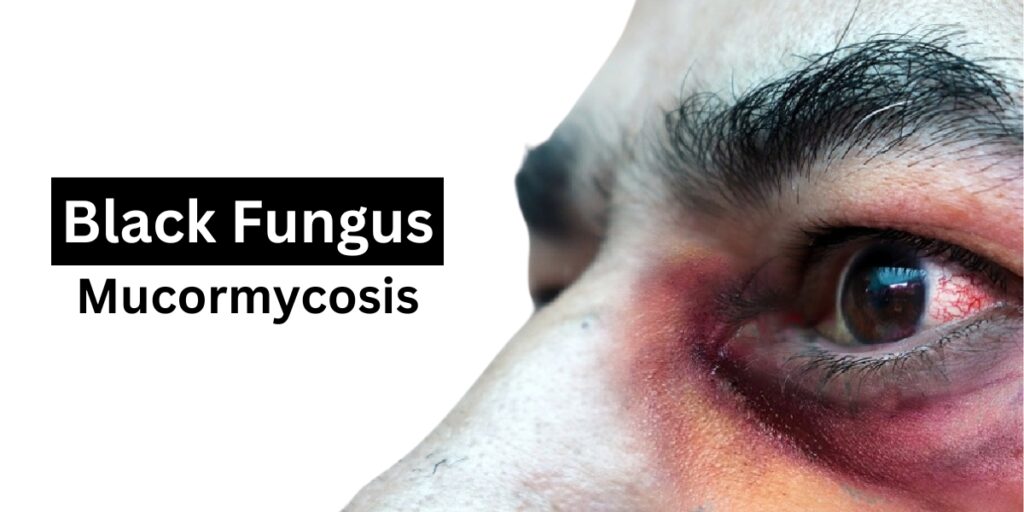Black fungus, medically known as mucormycosis, has become a topic of concern for many, especially in the wake of the COVID-19 pandemic. This rare but serious fungal infection has left many patients and their families searching for effective treatment options. In this comprehensive guide, we’ll explore homeopathic medicine for black fungus, its potential benefits, and what you need to know if you’re considering this alternative treatment approach.
Table of Contents
ToggleWhat is Black Fungus?
Before diving into homeopathic treatments, it’s crucial to understand what black fungus is. Mucormycosis is an infection caused by a group of molds called mucormycetes. These fungi are commonly found in soil, decaying organic matter, and even in the air we breathe. While they’re generally harmless to people with healthy immune systems, they can pose a serious threat to those with compromised immunity.
Black fungus typically affects the sinuses, lungs, and brain, but it can also impact other parts of the body. The infection earned its colloquial name “black fungus” due to the dark-colored tissue it can create as it destroys blood vessels and tissue in affected areas.
Symptoms of Black Fungus
Early detection of black fungus is crucial for effective treatment. Here are some common symptoms to watch out for:
Facial Symptoms
- Swelling on one side of the face
- Numbness or pain in the cheek area
- Blackish discoloration over the nose or palate
Eye-related Symptoms
- Blurred or double vision
- Eye pain or redness
- Swelling around the eyes
Sinus and Nasal Symptoms
- Nasal congestion or blockage
- Black discharge from the nose
- Sinus pain or pressure
Other Symptoms
- Headache
- Fever
- Shortness of breath (in case of lung involvement)
Risk factors for black fungus include:
- Weakened immune system
- Uncontrolled diabetes
- Recent COVID-19 infection
- Prolonged use of corticosteroids
- Organ transplant recipients
Also Read: Homeopathic Medicine for High Blood Pressure
Common Causes of Black Fungus
Weakened Immune System
One of the primary reasons people develop black fungus is a compromised immune system. This can occur due to various factors:
- Uncontrolled diabetes
- Long-term use of steroids
- Prolonged ICU stays
- Cancer treatments
- Organ transplants
Environmental Factors
Black fungus spores are commonly found in soil, air, and decaying organic matter. While healthy individuals can usually fight off these spores, those with weakened immune systems are more susceptible to infection.
COVID-19 Connection
During the COVID-19 pandemic, there has been an increase in black fungus cases, particularly among recovering patients. This is likely due to the use of steroids in COVID-19 treatment and the overall impact of the virus on the immune system. According to Livemint, India has reported the highest prevalence of mucormycosis in the world. As of June 28, 2021, India has reported 40,845 cases of black fungus, with the highest reported cases in Gujarat and Maharashtra.
Introduction to Homeopathy
Homeopathy is a form of alternative medicine that was developed in the late 18th century by Samuel Hahnemann, a German physician. The fundamental principle of homeopathy is “like cures like,” which suggests that a substance that causes symptoms in a healthy person can be used in small amounts to treat similar symptoms in a sick person.
Homeopathic remedies are highly diluted substances derived from plants, minerals, or animals. The theory behind this practice is that the more diluted a substance becomes, the more potent its healing properties. While this concept is not supported by modern scientific understanding, many people turn to homeopathy as a gentler alternative to conventional medicine.
Also Read: Homeopathic Treatment for Fibroids in Uterus
Top 15 Homeopathic Medicines for Black Fungus
When it comes to homeopathic medicine for black fungus, it’s important to note that there is no single, universally prescribed remedy. Homeopathic treatment is highly individualized, taking into account not just the specific condition but also the patient’s overall health, emotional state, and unique symptoms.
However, several homeopathic remedies have been suggested by practitioners for addressing symptoms associated with black fungus. Let’s explore some of these options:
1. Arsenicum Album
Arsenicum Album is often considered one of the primary homeopathic medicines for black fungus. It may be beneficial for:
- Burning sensations
- Restlessness and anxiety
- Weakened immune system
2. Kali Bichromicum
This remedy is known for its potential effectiveness in addressing:
- Thick, stringy mucus
- Sinus infections
- Ulceration of mucous membranes
3. Mercurius Solubilis
Mercurius Solubilis might be helpful for:
- Swollen glands
- Excessive salivation
- Ulceration in the mouth and throat
4. Silicea
Silicea is often used to:
- Boost the immune system
- Promote healing of tissues
- Address chronic infections
5. Thuja Occidentalis
This remedy may be beneficial for:
- Fungal infections
- Compromised immune function
- Chronic respiratory issues
6. Calcarea Carbonica
Calcarea Carbonica could be useful for:
- Improving overall immunity
- Addressing chronic fatigue
- Supporting bone health
7. Phosphorus
Phosphorus might help with:
- Respiratory issues
- Bleeding tendencies
- Weakened immune system
8. Sulphur
Sulphur is often considered for:
- Skin eruptions
- Burning sensations
- Chronic infections
9. Natrum Muriaticum
This remedy may be beneficial for:
- Mucous membrane irritation
- Headaches associated with sinus issues
- Emotional stress related to chronic illness
10. Pulsatilla
Pulsatilla could be helpful for:
- Thick, yellow discharges
- Sinus congestion
- Emotional support during illness
11. Hepar Sulphuris Calcareum
Hepar Sulph, as it’s often called, might be useful for:
- Suppurative processes
- Hypersensitivity to pain
- Tendency to develop infections
12. Bryonia Alba
Bryonia may be considered for:
- Dry mucous membranes
- Headaches worsened by movement
- Irritability during illness
13. Rhus Toxicodendron
This remedy could be beneficial for:
- Restlessness
- Joint and muscle pains
- Skin eruptions
14. Lachesis
Lachesis might be helpful for:
- Left-sided complaints
- Sensitivity to touch in affected areas
- Difficulty swallowing
15. Apis Mellifica
Apis Mellifica may be useful for:
- Swelling and edema
- Stinging pains
- Sensitivity to heat
Also Read: Homeopathy Medicine for Hair Fall and Regrowth
Note: We strongly recommend that consult with a doctor before taking any kind of medicine. You can consult a homeopathic doctor in Noida, Dr. Gunjan Rai after booking your online homeopathy consultation with her.
The Homeopathic Approach to Black Fungus
It’s crucial to understand that the homeopathic approach to treating black fungus differs significantly from conventional medicine. Rather than targeting the fungus directly, homeopathy aims to stimulate the body’s own healing mechanisms.
A homeopathic practitioner would typically:
- Conduct a detailed consultation to understand the patient’s specific symptoms, overall health, and emotional state.
- Select a remedy or combination of remedies that best match the patient’s unique symptom picture.
- Prescribe the chosen remedies in highly diluted forms, often as small pills or liquid drops.
- Monitor the patient’s progress and adjust the treatment as needed.
It’s important to note that homeopathic treatment is often a gradual process. Patients may not experience immediate relief but could notice subtle improvements over time.
Benefits of Homeopathic Treatment
Proponents of homeopathy suggest several potential benefits of using homeopathic medicine for black fungus:
- Gentle approach: Homeopathic remedies are highly diluted and are believed to work with the body’s natural healing processes, potentially resulting in fewer side effects compared to conventional treatments.
- Holistic treatment: Homeopathy considers the whole person, not just the disease. This approach may address underlying health issues that could be contributing to the patient’s susceptibility to black fungus.
- Complementary use: Some patients use homeopathic remedies alongside conventional treatments, believing that they may support overall health and well-being during the recovery process.
- Individualized care: The personalized nature of homeopathic treatment means that each patient receives a unique treatment plan tailored to their specific symptoms and needs.
Conclusion
Homeopathic medicine for black fungus is a topic that generates significant interest, particularly among patients seeking alternative or complementary treatments. While some individuals report positive experiences with homeopathy, it’s crucial to approach this option with caution and a clear understanding of its limitations.
Black fungus is a serious condition that typically requires prompt and aggressive medical treatment. While homeopathy may potentially offer supportive care or complement conventional treatments for some patients, it should not be relied upon as a sole or primary treatment for this potentially life-threatening infection.
Ultimately, the decision to explore homeopathic options should be made in consultation with healthcare professionals, considering the individual patient’s circumstances, the severity of their condition, and the available treatment options. As with any medical decision, the priority should always be the patient’s safety and well-being. You can consult with Dr. Gunjan Rai, who is one of the best homeopathic doctor in Ghaziabad and Delhi, NCR. She treated more than 8000 patients in her 11 years of career.
Remember, when it comes to black fungus, early detection and proper medical care are crucial. If you suspect you may have black fungus or are experiencing concerning symptoms, seek immediate medical attention. Your health and safety should always be the top priority.

Written by Dr. Gunjan Rai, BHMS, MD (Homeopathy) – a trusted homeopathic doctor with 13+ years of experience and 10,000+ patients treated. She completed her BHMS from Nehru Homeopathic Medical College (Delhi University) and MD from West Bengal University of Health Sciences. Dr. Rai has served in reputed government hospitals including GTB and JPC, and was a research fellow at the Central Council for Research in Homeopathy. Her clinical expertise covers chronic diseases, allergies, hormonal imbalance, skin and hair concerns, pediatric health, and women’s wellness. She has also published multiple research papers in reputed journals, combining scientific rigor with compassionate care.




